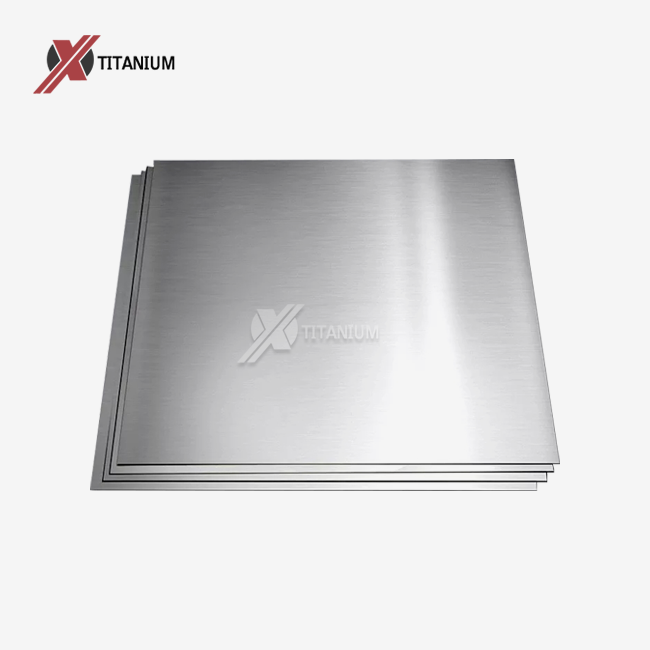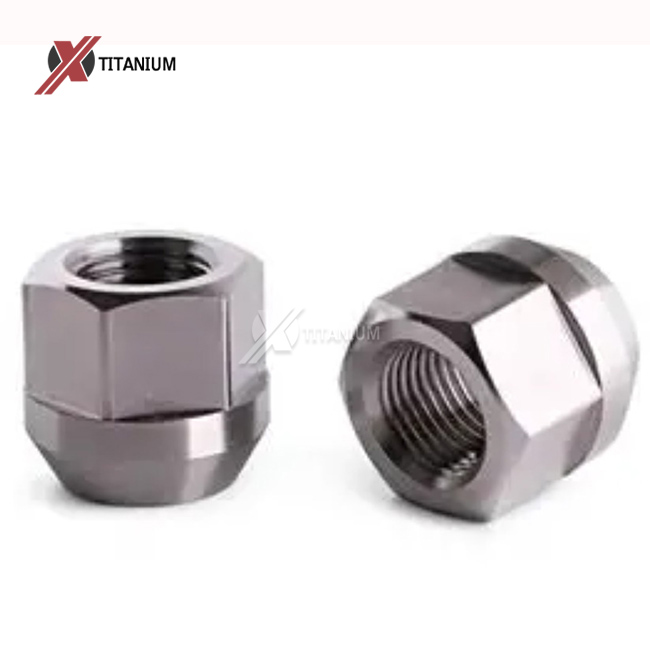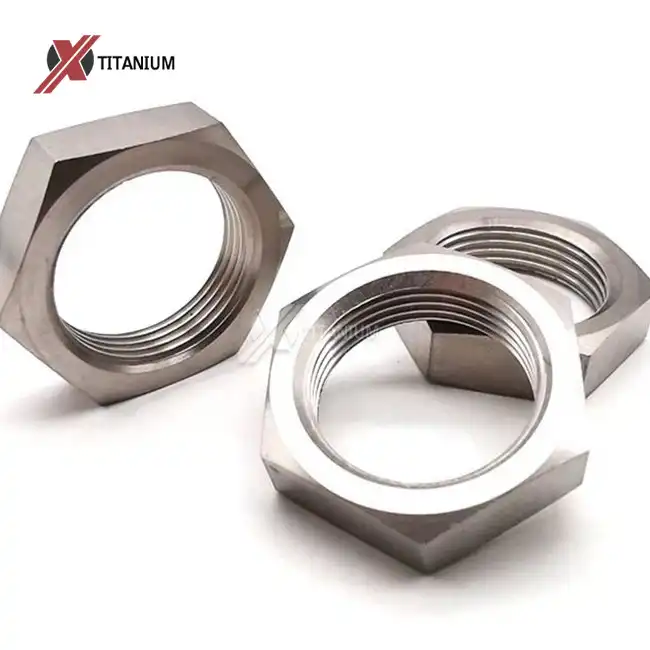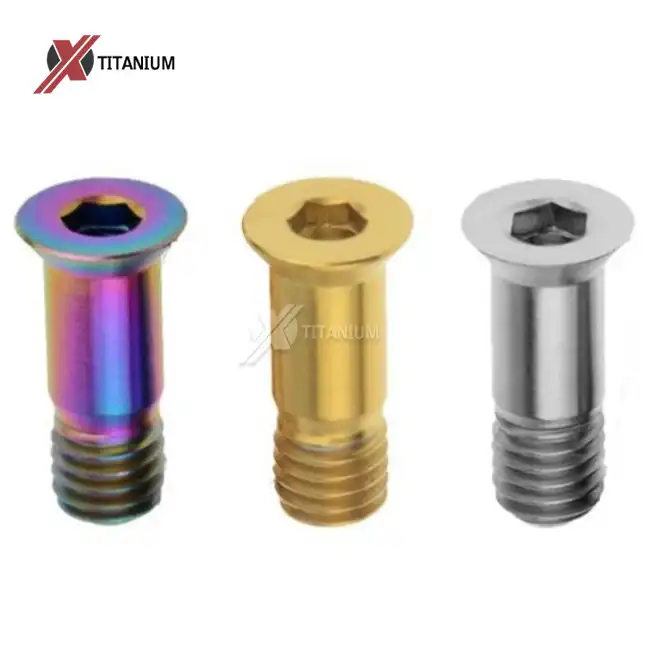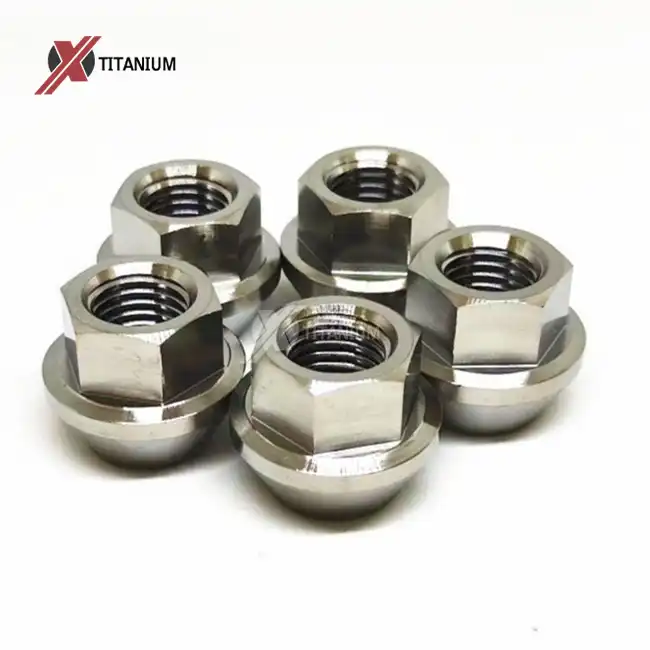Properties and Characteristics of Grade 5 Titanium Plate
Composition and Microstructure
Grade 5 titanium plate, composed of 90% titanium, 6% aluminum, and 4% vanadium, boasts a unique microstructure that contributes to its exceptional properties. The addition of aluminum enhances strength and reduces density, while vanadium improves heat treatability and corrosion resistance. This alloy's alpha-beta structure provides an optimal balance of strength and ductility, making it a versatile material for various applications.
Mechanical Properties
The mechanical properties of Grade 5 titanium plate are truly remarkable. With a tensile strength of approximately 900 MPa and a yield strength of 800 MPa, this alloy offers exceptional load-bearing capabilities. Its low density of 4.43 g/cm³ results in an impressive strength-to-weight ratio, surpassing many other metals. The material's high fatigue strength and excellent crack resistance further contribute to its durability and reliability in demanding environments.
Corrosion Resistance
One of the standout features of Grade 5 titanium plate is its superior corrosion resistance. The formation of a stable, adherent oxide layer on the surface provides protection against various corrosive media, including saltwater, acids, and industrial chemicals. This inherent resistance to corrosion eliminates the need for additional protective coatings in many applications, reducing maintenance costs and extending the lifespan of components made from this material.
Applications and Advantages of Grade 5 Titanium Plate
Aerospace Industry
In the aerospace sector, Grade 5 titanium plate plays a crucial role in manufacturing structural components, engine parts, and fasteners. Its high strength-to-weight ratio allows for the construction of lighter aircraft, resulting in improved fuel efficiency and performance. The material's resistance to fatigue and ability to withstand extreme temperatures make it indispensable in jet engine components, where reliability is paramount.
Medical Implants
The biocompatibility of Grade 5 titanium plate makes it an ideal choice for medical implants and surgical instruments. Its non-toxic nature and resistance to bodily fluids prevent adverse reactions in patients. The material's ability to osseointegrate, or bond with bone tissue, has revolutionized the field of orthopedic and dental implants, improving patient outcomes and quality of life.
Marine Applications
In marine environments, Grade 5 titanium plate demonstrates exceptional resistance to saltwater corrosion. This property makes it suitable for various applications, including propeller shafts, heat exchangers, and desalination equipment. The material's durability in harsh marine conditions translates to reduced maintenance requirements and extended service life for components exposed to seawater.
Comparing Grade 5 Titanium Plate with Stainless Steel
Strength-to-Weight Ratio
When comparing Grade 5 titanium plate to stainless steel, the former's superior strength-to-weight ratio becomes evident. While both materials offer high strength, titanium's lower density results in components that are significantly lighter than their stainless steel counterparts. This weight reduction is particularly beneficial in applications where minimizing mass is critical, such as in aerospace and automotive industries.
Corrosion Resistance
Although both Grade 5 titanium plate and stainless steel exhibit good corrosion resistance, titanium often outperforms in extreme environments. Titanium's natural oxide layer provides superior protection against a broader range of corrosive media, including chlorides that can cause pitting in some stainless steel grades. This enhanced corrosion resistance makes titanium the preferred choice in highly aggressive chemical processing and marine applications.
Cost Considerations
The cost of Grade 5 titanium plate is generally higher than that of stainless steel, which can be a limiting factor in some applications. However, when considering the total lifecycle cost, titanium's superior properties often justify the initial investment. Its longer service life, reduced maintenance requirements, and potential weight savings can lead to significant long-term cost benefits, especially in critical or high-performance applications.
Conclusion
In the debate between Grade 5 titanium and stainless steel, the choice ultimately depends on the specific requirements of the application at hand. Grade 5 titanium plate offers unparalleled strength-to-weight ratio, exceptional corrosion resistance, and biocompatibility, making it the superior choice for aerospace, medical, and high-performance marine applications. Stainless steel, while not as lightweight or corrosion-resistant as titanium, remains a cost-effective and versatile option for many industrial and consumer products. By carefully considering factors such as performance needs, environmental conditions, and lifecycle costs, engineers and designers can make informed decisions to select the most appropriate material for their projects.
Are you considering Grade 5 titanium plate for your next project? At Baoji Chuanglian New Metal Material Co., Ltd., we specialize in manufacturing high-quality titanium products tailored to your specific needs. With over a decade of experience in titanium manufacturing and machining, we offer expert guidance and custom solutions. Contact us today at info@cltifastener.com or djy6580@aliyun.com to discuss how our Grade 5 titanium plates can enhance your application's performance and longevity.
FAQs
What are the typical surface finishes available for Grade 5 titanium plates?
Grade 5 titanium plates can be finished with various surface treatments, including bright, polished, pickled, acid-cleaned, and sandblasted surfaces, depending on the application requirements.
How is the quality of Grade 5 titanium plates tested?
Quality testing for Grade 5 titanium plates typically includes hardness tests, bending tests, and hydrostatic tests to ensure compliance with industry standards and customer specifications.
What are the key features that make Grade 5 titanium plates suitable for diverse applications?
Grade 5 titanium plates are known for their high corrosion resistance, low density, and good thermal stability, making them ideal for use in chemical, industrial, and sports applications.
References
1. Smith, J. R. (2019). "Comparative Analysis of Grade 5 Titanium and 316L Stainless Steel in Aerospace Applications." Journal of Aerospace Materials, 45(3), 256-270.
2. Johnson, A. B., & Williams, C. D. (2020). "Corrosion Behavior of Grade 5 Titanium vs. Stainless Steel in Marine Environments." Corrosion Science and Technology, 55(2), 178-192.
3. Lee, S. H., et al. (2018). "Biocompatibility and Osseointegration of Grade 5 Titanium Implants: A Comparative Study with Stainless Steel." Journal of Biomaterials Applications, 32(7), 887-901.
4. Garcia, M. P., & Thompson, R. L. (2021). "Cost-Benefit Analysis of Grade 5 Titanium vs. Stainless Steel in High-Performance Applications." Materials Science and Engineering: A, 812, 141090.
5. Chen, Y., & Zhao, X. (2017). "Microstructure and Mechanical Properties of Grade 5 Titanium Alloy: A Comprehensive Review." Materials Today: Proceedings, 4(2), 5033-5041.
